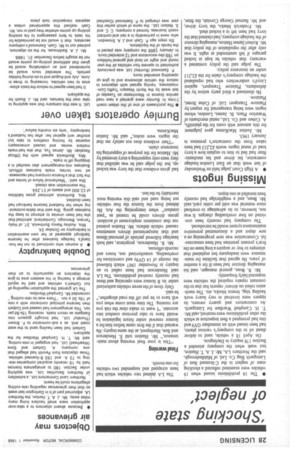Missing ingots
Page 30

If you've noticed an error in this article please click here to report it so we can fix it.
• A High Court judge held on Wednesday of last week that an East London haulage contractor, his driver and his mechanicfitter had lied to him to explain how a lorry load of metal ingots worth £2,213 had been taken from the contractor's premises in January 1963.
Mr. Justice MacKenna gave judgment for this amount with costs for the plaintiffs, A. Cohen and Co. Ltd., metal merchants of Waterloo Place, St. James, London, whose ingots were being transported for export by Plaistow Transport Ltd. of Colne Street, Plaistow.
He dismissed a third party action by the defendants, Plaistow Transport, against Lloyd's underwriters who had repudiated the haulage company's claim for the £2,213 tinder an insurance policy.
The judge said the policy contained a warranty that vehicles be kept in locked garages if left unattended at night. It was only after the repudiation of the policy that Mr. Robert James Hatton, managing director of the haulage company, had claimed that the lorry had been left in a locked shed.
Mr. Frederick Meeks, the lorry driver, and Mr. Samuel George Cornish, the fitter, had given evidence that the lorry was locked up, but the judge said he was satisfied that they were only supporting a story invented by Mr. Hatton for the purpose of supporting his insurance claim.
"Their evidence does not satisfy me that the ingots were stolen," said Mr. Justice MacKenna.




































































































